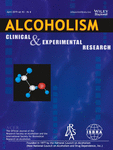 If you’ve ever gone on a bender and consumed a lot of alcohol in one session, you may want to pay attention to the results of some research conducted at Rutgers University. Binge drinking can lead to changes in your DNA resulting more instances of alcohol cravings.
If you’ve ever gone on a bender and consumed a lot of alcohol in one session, you may want to pay attention to the results of some research conducted at Rutgers University. Binge drinking can lead to changes in your DNA resulting more instances of alcohol cravings.
These results are the latest findings in a growing body of evidence suggesting that alcohol and drug use changes the body on a cellular level. These changes support an active addiction and make it possible for the disease to be passed on to future generations.
Genes Associated with Drinking React Differently in Heavy Drinkers
Researchers found that genes associated with controlling alcohol consumption behave differently for people who are heavy drinkers. They also discovered that POMC, which is responsible for regulating the stress response system, and PER2, which controls the biological clock, indicate reduced gene expression.
This means they produce proteins at a lower-than-normal rate. As a result, those affected experience an increased desire for alcohol and then drink more to satisfy it.
Dipak Sarkar, a co-author of the study and director of the endocrine program at Rutgers compared the situation to an “egg-and-chicken kind of thing.” A person drinks and wants to stop, but stopping is more difficult due to the altered gene that makes him more susceptible to alcohol initially.
Impact of Drug and Alcohol Use Passed Down to Children
The findings reinforce the thought that the genetic impact of drug and alcohol use is much more wide-ranging than simply during conception or pregnancy. Using chemicals during adolescence can initiate long-term genetic changes that will impact future offspring, according to researchers.
Researchers still need to determine the exact nature of this effect on genes. The notion that DNA can change based on stressors like drugs is “amazing,” according to Bill Jangro, Thomas Jefferson Hospital’s Medical Director for the Division of Substance Abuse Programs.
Chemicals like alcohol, which are generally seen as lower risk, have this effect on genes. Most of the research in this area has focused on alcohol’s ability to change DNA. Studies have shown that drugs like opioids, methamphetamine, cocaine and cannabis have a similar effect.